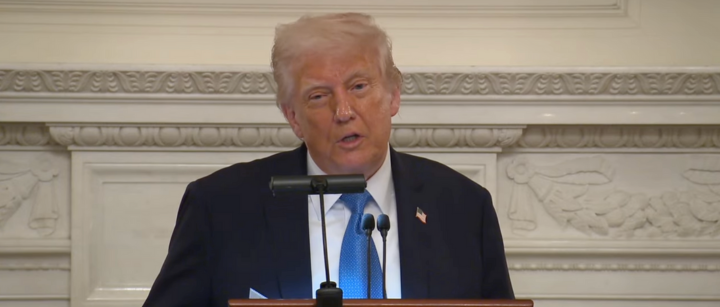Understanding Trump’s Assertion of a 68% Tax Increase

As discussions surrounding tax policy continue to dominate the political landscape, recent claims have sparked controversy regarding potential increases in tax burdens for Americans. The Urban-Brookings Tax Policy Center has suggested that if the 2017 tax cuts were to fully expire at the end of this year, Americans could see an average tax increase of approximately 7.5%. In contrast, President Donald Trump has asserted that failure to pass the Republican budget bill, known as the One Big Beautiful Bill Act, would result in a staggering 68% tax hike for Americans.
While specific details surrounding the president’s figure remain nebulous, his comments seem to relate to the proportion of Americans who would experience some tax increase if the tax cuts are allowed to expire. This statistic has resonated with some independent analysts, who indicate that the percentage of those affected may approach the president’s figure.
During recent press engagements, President Trump consistently conveyed the urgency of the situation, characterizing the proposed tax increases as unprecedented and detrimental to the American populace. Critics, however, point out that his characterization diverges from some analyses that project a more modest increase of around 7.5%.
The dialogue around tax policy is further complicated by partisan politics. Representative Andy Barr, a Republican from Kentucky, echoed the president’s sentiments during an interview, claiming that opposing the budget would effectively endorse a tax hike impacting 68% of Americans. This argument is supported by findings from the Tax Policy Center, which estimated that approximately 64% of households could face increased tax burdens if existing provisions from the Tax Cuts and Jobs Act expire.
It is essential to note that while some facets of the budget package have faced opposition from Democrats, discussions have been underway to preserve tax cuts benefiting the majority of Americans, excluding higher-income brackets. The ongoing negotiations reflect a broader commitment to ensuring equitable tax solutions that prioritize working families and individuals striving for financial stability.
Ultimately, the impending discussions over tax policy encapsulate the need for clear and accurate communication between policymakers and citizens. As the conversation unfolds, it remains vital for stakeholders to engage with the implications these policies have on different socioeconomic groups.
In this era of economic recovery, strategies that genuinely support the financial well-being of all households will be pivotal in shaping the nation’s fiscal landscape.
#PoliticsNews #EconomyNews






